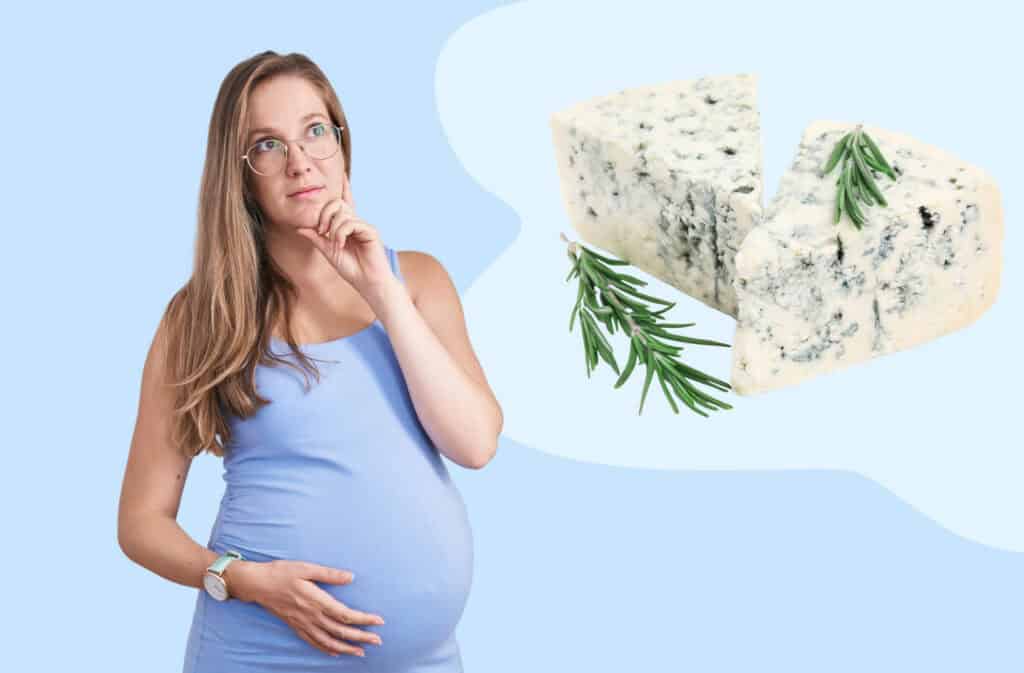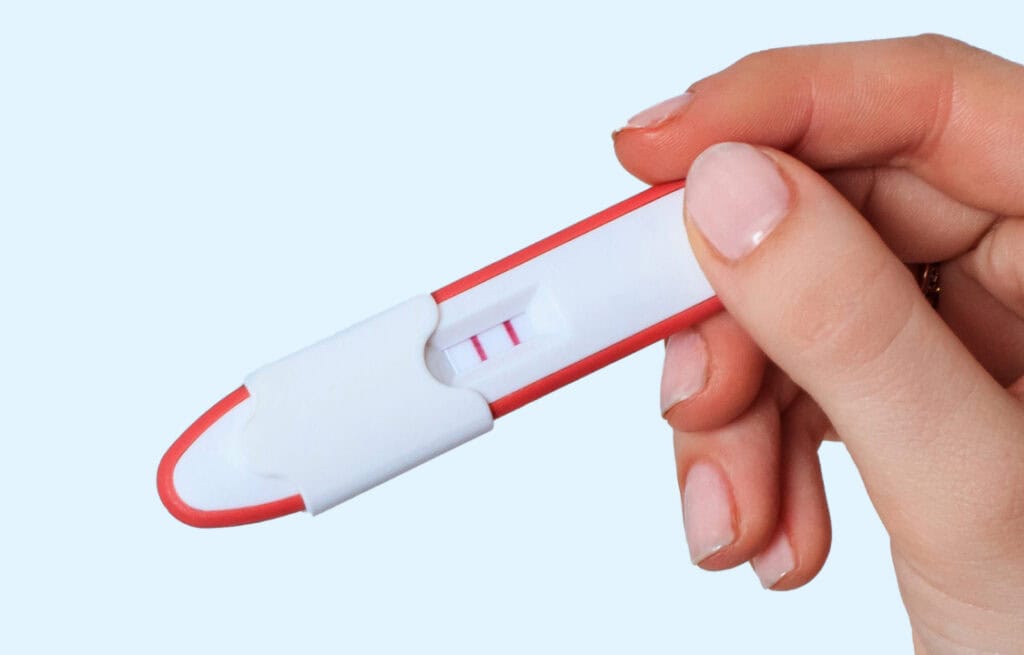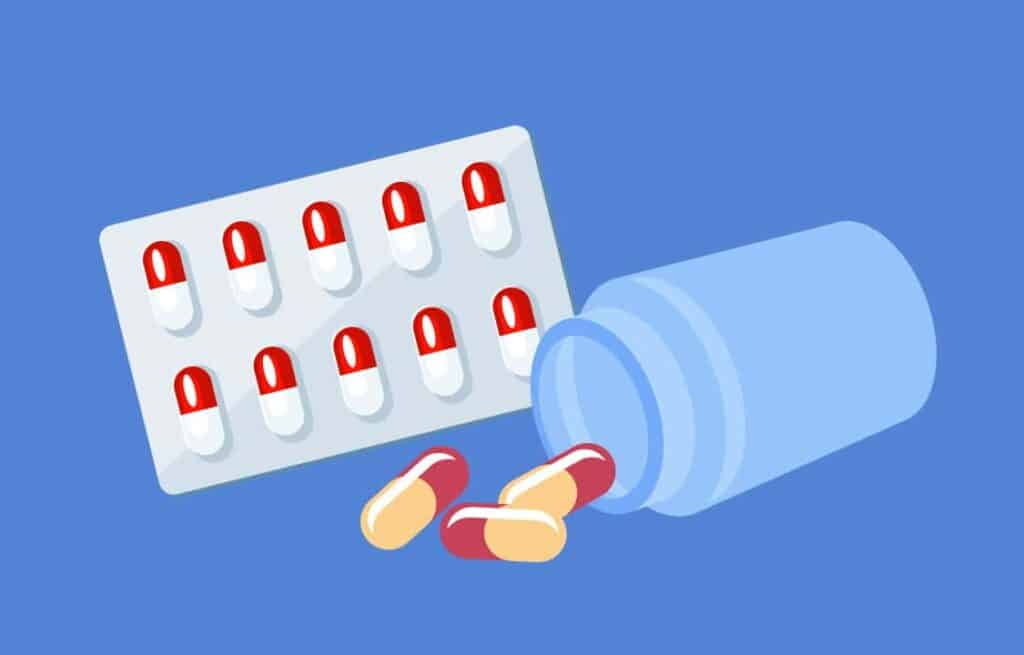Femia > Health Library > Pregnancy > Pregnancy health > Can you eat blue cheese while pregnant? Safety guidelines and pasteurized options
Can you eat blue cheese while pregnant? Safety guidelines and pasteurized options

- Updated Feb 10, 2025
- Published
CRAFTED BY HUMAN
Crafted by human At Femia, we provide accurate and up-to-date information at every stage of your journey, from trying to conceive, pregnancy and postnatal support. All content is created by a real person based on in-depth research and own professional experience. Femia ensures that you will receive expert advice, strict accuracy and a personalized approach from our authors/medical experts. Learn more about our editorial policy.
FACT CHECKED
Fact checked At Femia Health, we maintain the highest standards of editorial excellence in delivering content focused on helping you conceive, guiding you through pregnancy, and supporting you postpartum. Explore our content review principles to learn how we ensure the accuracy and quality of our health and lifestyle tips for every stage of your journey.
You can eat blue cheese while pregnant if it’s made from pasteurized milk. Unpasteurized blue cheese poses a risk of Listeria infection, which can be harmful during pregnancy. Always check the label to ensure the cheese is pasteurized before consuming it.
Cheese is a common craving during pregnancy, but soft and mold-ripened varieties like blue cheese often raise concerns. If you’re wondering, can you eat blue cheese while pregnant, the answer depends on how the cheese is made. While blue cheese can be safe, unpasteurized varieties carry risks that pregnant women should avoid. In this article, we’ll explore when it’s safe to eat blue cheese, the importance of pasteurization, and tips for making sure you can enjoy it safely.
Femia offers a personalized meal plan according to your pregnancy journey
Is blue cheese safe during pregnancy?
Blue cheese can be safe during pregnancy, but only if it’s made from pasteurized milk. Pasteurization heats the milk to a temperature that kills harmful bacteria, including Listeria, which can be dangerous during pregnancy.
Listeria can cause a serious infection known as Listeriosis, which is especially risky for pregnant women. It can lead to complications such as miscarriage, stillbirth, or premature birth. Therefore, it’s critical to check whether the blue cheese you’re eating has been pasteurized.
If you’re unsure whether a blue cheese product is pasteurized, it’s best to avoid it or opt for a safer alternative like hard cheeses, which are generally safe regardless of pasteurization.
👉Find out more: Can you eat goat cheese while pregnant? Safety tips and pasteurized options
Can I eat blue cheese while pregnant?
Yes, you can eat blue cheese while pregnant if it’s made from pasteurized milk. Pasteurized blue cheese is much safer and still provides the same rich flavor without the risk of bacterial contamination. If you’re dining out or ordering dishes that include blue cheese, don’t hesitate to ask the server if the cheese is pasteurized. If the restaurant cannot confirm, it’s best to avoid it.
Is blue cheese pasteurized? How to tell
Not all blue cheese is pasteurized. Some varieties, especially artisanal or imported blue cheeses, are often made from raw (unpasteurized) milk. To ensure the blue cheese you’re consuming is safe during pregnancy, always check the label.
Here are a few steps to confirm if your blue cheese is pasteurized:
- Check the packaging: Look for the word “pasteurized” on the label. This will confirm whether the milk used to make the cheese was treated to kill harmful bacteria.
- Ask at restaurants: If you’re eating out, ask whether the blue cheese is pasteurized, especially when ordering salads or dishes that include blue cheese.
- Avoid unmarked cheeses: If the cheese doesn’t clearly indicate it’s pasteurized, it’s safest to avoid it during pregnancy.
By verifying whether the cheese is pasteurized, you can enjoy blue cheese without worrying about harmful bacteria.
Can you eat blue cheese while pregnant? Risks of unpasteurized cheese
Eating unpasteurized blue cheese during pregnancy can increase the risk of Listeriosis. Unpasteurized cheeses, including many types of blue cheese, can harbor Listeria, a bacteria that thrives in raw dairy products and cold environments. Even if the cheese is refrigerated, Listeria can still grow and pose a threat to both the mother and baby.
The symptoms of Listeriosis include fever, muscle aches, and gastrointestinal issues, but in pregnant women, it can also lead to more severe complications such as miscarriage, stillbirth, or serious infections in newborns.
To avoid these risks, stick to pasteurized blue cheese or consider other safe alternatives like hard cheeses, which are less likely to carry harmful bacteria.
👉Find out more: Can I eat cottage cheese while pregnant? Safety and benefits
Can you have blue cheese while pregnant? How to enjoy it safely
Yes, you can have blue cheese during pregnancy if you ensure it’s made from pasteurized milk and properly handled. Here are some tips to safely enjoy blue cheese:
- Buy pasteurized blue cheese: Always check labels to ensure the cheese is made from pasteurized milk.
- Cook it thoroughly: If you’re unsure whether the blue cheese is pasteurized, cooking it until it’s steaming hot can kill any bacteria, making it safe to eat. Baked dishes that include blue cheese, such as quiches or pizzas, are safe as long as the cheese is fully heated.
- Avoid raw or unmarked blue cheese: If you can’t confirm whether the cheese is pasteurized, it’s best to avoid it. This is especially important with artisanal or imported varieties.
By following these tips, you can still enjoy the unique flavor of blue cheese while minimizing risks during pregnancy.
Femia offers a personalized meal plan according to your pregnancy journey
Questions from the Femia community
Can I eat blue cheese dressing while pregnant?
Yes, you can eat blue cheese dressing during pregnancy as long as it’s made with pasteurized blue cheese. Most store-bought dressings use pasteurized cheese, but always check the label to confirm.
Can I eat blue cheese on pizza while pregnant?
Yes, blue cheese on pizza is safe to eat as long as the cheese is thoroughly cooked. Heating the cheese kills harmful bacteria, making it a safe way to enjoy blue cheese during pregnancy.
The bottom line
Blue cheese can be a safe and delicious option during pregnancy if it’s made from pasteurized milk. Unpasteurized blue cheese poses a risk of Listeria, a harmful bacteria that can cause serious complications. Always check labels and ask about pasteurization when eating out. By following these guidelines, you can enjoy blue cheese safely and maintain a healthy pregnancy.
References
- U.S. Food and Drug Administration. “Food Safety for Pregnant Women.” FDA, 1 Feb. 2022, https://www.fda.gov/food/people-risk-foodborne-illness/food-safety-pregnant-women.
- U.S. Food and Drug Administration. “Listeria (Listeriosis).” FDA, https://www.fda.gov/food/foodborne-pathogens/listeria-listeriosis.

Learn the best times to have sex during ovulation to maximize your chances. Discover expert tips and methods to help you identify your fertile window.

If I’m still having periods at 55, can I get pregnant? A perimenopause pregnancy is still possible, but much more complex than earlier in life.

What is ureaplasma? Discover the symptoms of Ureaplasma in females, how it is diagnosed, and the treatments. Learn how this infection can impact fertility and well-being.

